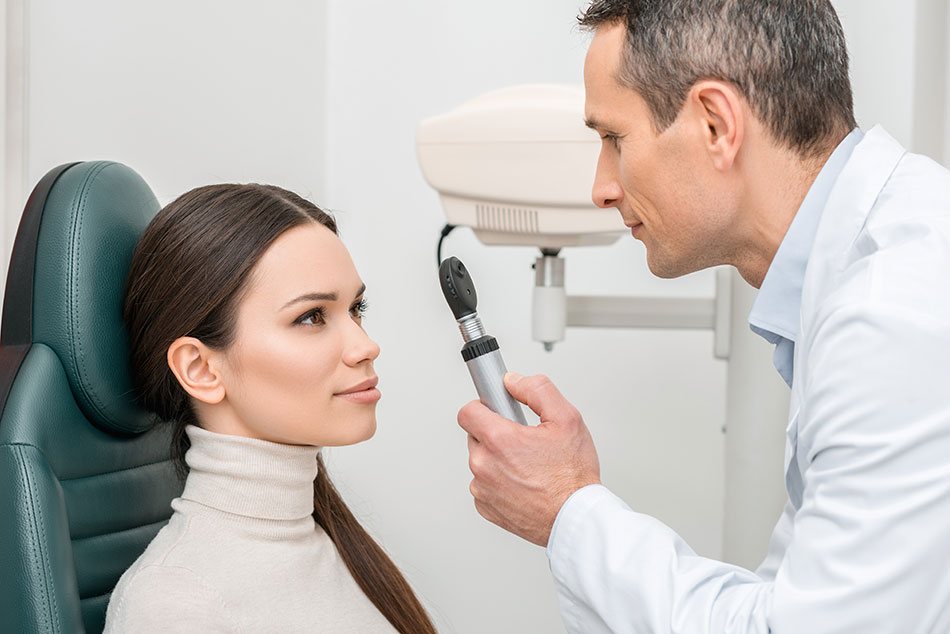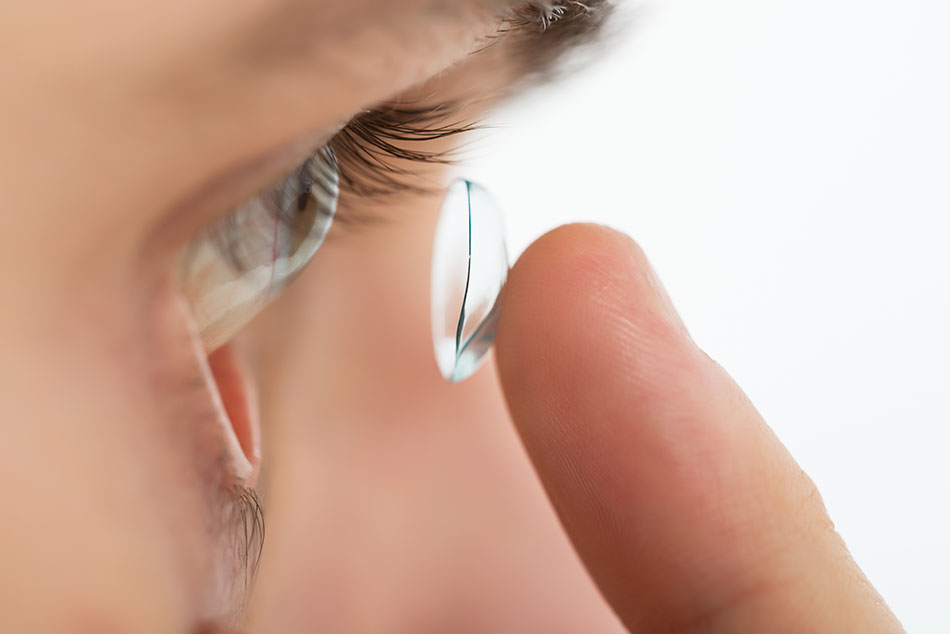Contact Lens Irritation: 7 Common Causes and How to Fix Them

Did you know one of the top reasons people don’t switch from glasses to contact lenses is fear of discomfort from touching or scratching their eyes?
It's true that some people suffer from contact lens irritation. However, any discomfort you may experience could be a sign you're not wearing them correctly. When used as instructed, contacts act as a second "skin" over your eyes, which means you should barely feel them.
Contact lenses are comfortable and can provide a lot of freedom for people who need to correct their vision. If you're experiencing any problems with your contact lenses, there are ways you can fix it.
Here are 7 common causes of contact lens irritation and how you can protect your eyes.
1. Contacts That Don’t Fit Right

Every eye has a slightly different shape, and even your two eyes may not be identical. If you buy contact lenses without a proper prescription or fitting, they may not sit correctly on the cornea. This can cause constant irritation, dryness, or blurry vision.
Solution:
- Visit your eye doctor for a professional fitting before switching to contacts.
- Make sure your prescription includes details like base curve and diameter.
- If your lenses still feel uncomfortable, schedule a follow-up exam to check the fit.
2. User Errors

Putting in contact lenses may seem simple, but small mistakes can cause big discomfort. Common errors include:
- Wearing a lens inside out
- Mixing up the left and right lenses
- Not rinsing hands before inserting
The solution is to develop a consistent routine. Start with the same eye each day, check the lens shape (a smooth cup with no ridges), and always wash and dry your hands before handling lenses.
3. Dry Eye
Your eyes naturally produce tears to keep contacts comfortable. If your tear film is disrupted, lenses may rub against the surface of your eyes and cause irritation. Dry eye can be linked to aging, medications, or health conditions like diabetes.
Solution:
- Use preservative-free artificial tears or rewetting drops approved for contact lens wear.
- Stay hydrated by drinking enough water.
- If dryness persists, consult an optometrist for underlying causes.
4. Wearing Contacts for Longer Than Recommended
There are many contacts on the market designed for different needs. Some contacts are safe to sleep with them on, whereas others are disposable. Following the instructions for your set of contacts is imperative for optimal eye health.
If you leave your contacts in longer than the instructions outline, your eyes will protest. If you also try to extend the lifespan of your contacts to save money, this can lead to infection. Always replace old contacts once you hit their expiration dates.
More and more people are switching to disposable contact lenses to avoid the maintenance hassles. If you want contacts that are easy to care for, you should consider daily contacts, too.
5. Allergic Reactions

Everyone dreads allergy season. Most symptoms include a runny nose, sore throat, and all-day exhaustion. For contact wearers, allergies can also wreak havoc on the eyes.
Contacts are designed to hold moisture in so they can rest on your eyes. While this is great for your comfort, it can work against you if you live in a dusty or allergen plagued area. Dust, allergens, and other pollutants can stick to your contact lenses. Not only can this dry out your eyes, but it can also scratch them.
To avoid this, you need to disinfect your lenses every day. Flushing your eyes with drops prior to wearing your contacts can also help soothe irritation. Don’t take antihistamines unless necessary, since they can further dry out your eyes.
If you don't want to go through all the trouble, switching to daily contacts can keep your eyes fresh and happy with less to worry about.
6. Not Following Proper Care Instructions
Nobody enjoys going to the dentist to find cavities, so we brush our teeth every day to avoid it. People who wear contacts have another chore to add to their daily routine, but it is also well worth the effort.
If you don't wear disposable lenses, you need to follow a routine to take care of your contacts. This means cleaning them every night and regularly washing the lens case. If you try to cut corners, then you could wind up with irritated eyes or a nasty infection. Always use fresh lens solution and handle your contacts with thoroughly washed hands.
7. Eye Infections

If you know the first 6 issues in this list are not the cause of your discomfort, you may have contracted an eye infection. Contacts themselves are safe and can never cause an eye infection if used properly. Human error is what creates a bad environment where bacterial overgrowth can occur. Should you happen to experience an infection, make sure you learn to properly take care of your contacts so you can avoid future problems.
If you suspect you have an infection, don't delay a trip to the doctor. Infections are easily treated, and ignoring the symptoms can lead to permanent eye damage. In some cases, even blindness can happen.
Preventing and Managing Contact Lens Irritation
Contact lenses are a safe and comfortable vision option for millions of people, but proper care and awareness are essential to avoid irritation. By understanding the most common causes, such as poor fit, dryness, allergies, or improper hygiene, you can take quick action to protect your eyes and maintain clear vision.
If irritation continues despite good habits, schedule an eye exam. Your optometrist can check for underlying issues, ensure your lenses fit correctly, update your prescription, and recommend solutions that keep your eyes healthy and comfortable.
FAQs: Contact Lens Irritation
Why do my eyes feel irritated after putting in contacts?
This could be due to lenses being inside out, debris on the lens, or a poor fit. Always check lens orientation and clean them before inserting.
Can dry eyes cause contact lens irritation?
Yes. Without enough tears, contacts can rub against the surface of the eye and cause discomfort. Artificial tears and staying hydrated can help.
What should I do if my eyes hurt from contacts?
Remove the lenses immediately. Clean and disinfect them, or switch to glasses until you can see your doctor. If pain persists, seek medical advice.
How can I prevent irritation from contact lenses?
Follow proper cleaning routines, replace lenses on schedule, use rewetting drops when needed, and avoid sleeping in lenses unless approved.
When should I see a doctor about contact lens irritation?
If you notice redness, swelling, discharge, or pain that does not go away after removing lenses, contact your optometrist right away.
